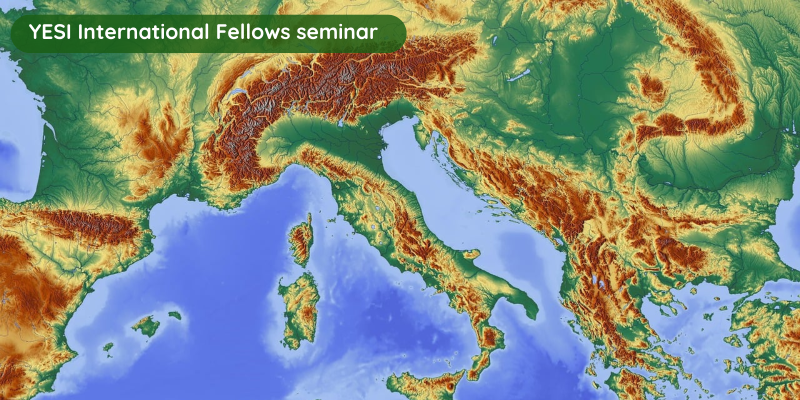
Green Agenda and Sustainable Connectivity in the EU Accession Process
This event has now finished.
ENV/105X, Environment Building, Campus West, University of York (Map)
Event details
Green Agenda and Sustainable Connectivity in the EU Accession Process: Between Political Conditionality and Legal Complexity
The EU enlargement process has significantly evolved from its early politically guided phases to a highly structured, conditional, and legally complex framework. This seminar talk critically explores how these changes affect the integration of environmental protection and sustainable development—focusing particularly on Chapter 27: Environment and Climate Change and the broader context of the Western Balkans.
Drawing on comparative regional experiences, the seminar talk will position Serbia and its neighbors within the most recent phase of enlargement, marked by the “fundamentals first” approach and strict benchmarking mechanisms. Although environmental protection remains structurally secondary in the formal accession priorities, the EU’s internal legal framework is simultaneously undergoing rapid transformation through the European Green Deal.
The seminar talk will delve into how the evolving framework of the European Green Deal is profoundly influencing the legal landscape of EU candidate countries. It will highlight how recent legislative developments are reshaping expectations for public authorities and private actors alike. These instruments go beyond conventional environmental regulation, embedding sustainability, human rights protection, and climate-related accountability into the operational and governance structures of businesses and institutions. Their implementation represents a significant step toward aligning candidate countries’ legal systems with the EU’s broader sustainability and market governance agenda.
This topic will be presented by Prof. Dr. Mirjana Drenovak-Ivanović, drawing on her dual role as a legal scholar and a former member of Serbia’s EU Accession Negotiation Team, where she was in charge of Chapter 27 (Claster IV: Green Agenda and Sustainable Connectivity). She coordinated the preparation of Serbia’s official negotiation position—which has since been endorsed by the European Union—in close collaboration with more than 150 stakeholders, including representatives from ministries, industry, and civil society organizations. Her insights offer a rare behind-the-scenes view into the legal, institutional, and political processes underpinning environmental alignment in the Western Balkans.
Adopting a regional perspective, the seminar talk will argue that treating environmental conditionality as a purely technical requirement undermines its strategic significance. Instead, environmental governance must be recognized as a key pillar of democratic transformation, legal certainty, and sustainable economic integration within the EU accession process.
Join us for a timely and critical reflection on how sustainability imperatives intersect with legal transformation and EU integration across the Western Balkans.

About the speaker
Professor Dr Mirjana Drenovak-Ivanović
Mirjana Drenovak-Ivanović is a Full Professor of Environmental and Climate Change Law at the University of Belgrade, where she also holds the Jean Monnet Chair in Environmental and Climate Change Law and founded both the Environmental Law Clinic and the Master’s Course in Environmental Law. She was awarded OSCE Mission to Serbia’s Person of the Year for 2023 for her contributions to environmental protection and human rights. With over 18 years of experience, she has conducted research at Oxford (Chevening Scholar) and Harvard (Fulbright Scholar), focusing on access to environmental and climate justice, human rights and the environment, and sustainability law.
She has advised international organizations like the OSCE, Council of Europe, UN, and IUCN, and was appointed to Serbia’s EU accession negotiating team, where she coordinated multisectoral dialogue and drafted key environmental negotiation documents. Her legislative work includes aligning Serbian environmental law with EU acquis and developing training programs for judges and prosecutors, which she has delivered in numerous national and international settings across Europe and Asia.
In 2023, she founded the Environmental and Climate Law Hub, promoting sustainability law and capacity-building. She also contributes to the Council of Europe’s international and regional projects on human rights and the environment, and UNDP’s global judicial training program.
Mirjana has continuously promoted the concept of a safe, clean, healthy, and sustainable environment as integral to the full enjoyment of a wide range of human rights. She has engaged extensively with the public and media and authored over 80 publications in environmental and climate change law.
